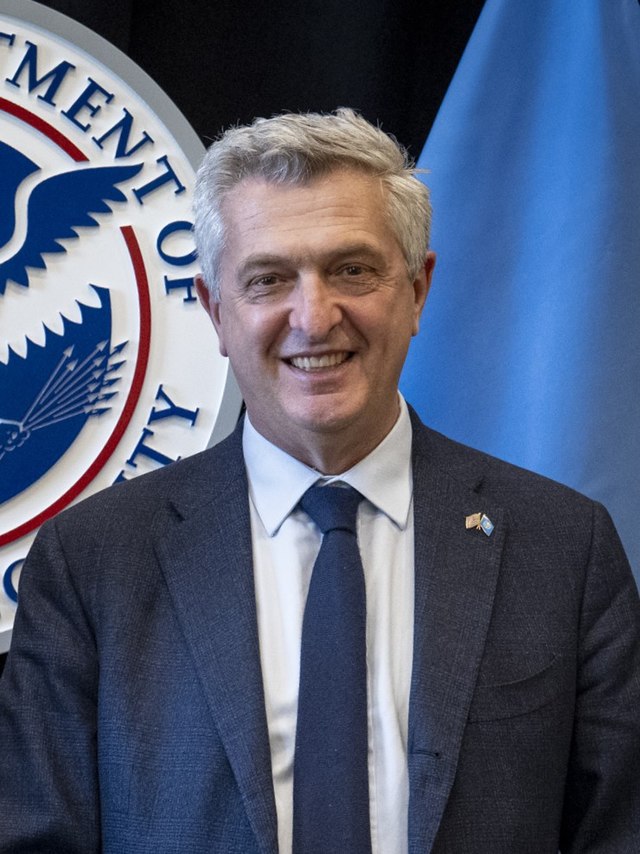UNHCR Faces $300 Million Funding Crisis as Global Displacement Hits Record High
According to Grandi, UNHCR expects to end 2025 with just $3.9 billion in available funds, a staggering 25 percent decrease from 2024 levels.

The United Nations Refugee Agency (UNHCR) is facing a critical $300 million shortfall in its 2025 budget — a funding gap that could trigger further devastating cuts to life-saving programmes for refugees and displaced persons worldwide. UN High Commissioner for Refugees Filippo Grandi issued the stark warning during his opening address to the UNHCR Executive Committee’s 76th annual session in Geneva, marking the final year of his decade-long tenure at the helm of the agency.
A Deepening Humanitarian Funding Crisis
According to Grandi, UNHCR expects to end 2025 with just $3.9 billion in available funds, a staggering 25 percent decrease from 2024 levels. The last time the agency’s operational budget fell below $4 billion was in 2015, when the global forcibly displaced population was roughly half of today’s 122 million people.
The High Commissioner described the situation as “incredibly damaging,” noting that the agency has already been forced to shut down or scale back vital humanitarian programmes earlier this year. These included initiatives providing emergency aid, education, refugee resettlement, and support to survivors of gender-based violence and torture.
The funding shortfall has also led to severe internal repercussions: nearly 5,000 UNHCR staff members have lost their jobs in 2025, while 185 offices around the world have been downsized or restructured.
“This crisis is not the result of bad management or inefficiency,” Grandi emphasized. “It is the result of political choices with disastrous financial implications.”
Warning of a Spillover into 2026
Grandi cautioned that unless urgent action is taken, the shortfall could carry into next year, leaving no available funds to cover operational expenses at the start of 2026. He urged donor governments and partners to close the $300 million gap through flexible funding before the end of 2025 and to pledge early disbursements for 2026 to ensure continuity of aid.
Despite the bleak outlook, Grandi expressed cautious optimism: “We will recover. We will be smaller, but we will remain strong.”
Refugee Needs Rising Amid Global Conflicts
Grandi underscored that UNHCR’s mission — to protect, assist, and find solutions for refugees — is more crucial now than ever in its 75-year history. He pointed to multiple ongoing crises — from Sudan and Gaza to Ukraine, Myanmar, and the Democratic Republic of the Congo — that have contributed to the highest global displacement levels ever recorded.
“The last time we faced a funding environment like this, the refugee population was half of what it is now,” he said. “Today, we are confronting more conflicts, more displacement, and fewer resources.”
No “Easy Fix” for Global Refugee Challenges
Addressing the growing political fatigue around humanitarian issues, Grandi warned against attempts by governments to undermine the 1951 Refugee Convention and its 1967 Protocol. Such actions, he said, would be “a catastrophic error” that would only exacerbate global instability.
“It would lead us down blind alleys and make the problem harder to solve. Beware, please, the easy fix,” he cautioned.
Grandi noted that three-quarters of the world’s refugees are hosted in low- and middle-income countries, whose “generosity and resilience must be matched with genuine international solidarity.”
“The challenge in front of us,” he added, “is one of implementation, not of principles.”
New Strategies for Long-Term Resilience
UNHCR is working to develop more sustainable and development-oriented responses to displacement. The agency aims to stabilize populations at earlier stages of migration, before they cross multiple borders, by providing protection, livelihood support, and safe migration pathways.
Grandi emphasized the need for integrated partnerships with humanitarian and development actors to support both refugees and host communities. This includes including refugees in national systems — such as health, education, and employment — to reduce long-term dependency on emergency aid.
Restoring Hope Through “Doors to Peace”
Reflecting on UNHCR’s broader role, Grandi described the agency’s dual humanitarian and diplomatic function:
“One of the greatest privileges of working with UNHCR is to straddle the boundaries between aid and diplomacy — to help refugees, and in doing so, help open doors to peace when peace seems impossible.”
He cited Syria as an example of cautious progress, noting that over one million Syrians have returned home since the civil war’s end in late 2024. However, he stressed that returning refugees urgently need housing, jobs, education, and security to make repatriation sustainable and to consolidate peace.
A Farewell and a Call to Action
As Grandi prepares to leave office after 10 years as High Commissioner, he offered heartfelt gratitude to refugee-hosting countries, donors, partners, and refugees themselves for their perseverance amid adversity.
“Thank you for giving me strength and inspiration for more than 40 years,” he said. “There has never been an easy year to be a refugee — and there never will be.”
Grandi’s warning serves as a call for renewed international solidarity at a time when humanitarian needs are surging but compassion — and funding — are in dangerously short supply.
ALSO READ
EU's Delicate Dance: Financing Ukraine with Frozen Russian Assets
EU's Dilemma: Utilizing Russian Assets for Ukraine Aid
We are not powerless in face of Gaza, West Bank, Ukraine atrocities, insists UNHCR chief
EU's Strategic Use of Frozen Russian Assets to Aid Ukraine
Kremlin Denies Reliance on Chinese Intelligence in Ukraine Conflict









